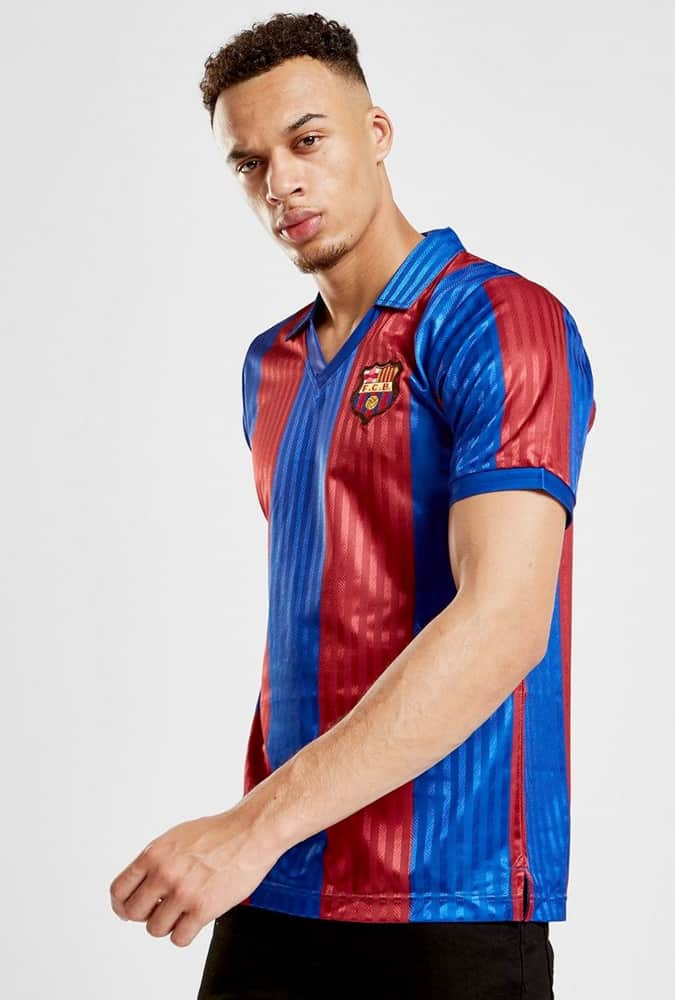The Best Retro Football Shirts You Can Still Buy Today
Time was, if you were a football fan who was also into fashion, you never actually wore your team’s shirt, with the possible exception of on the five-a-side pitch. Representing, as it’s known, was strictly for ‘scarfers’ (a term used to describe regular football fans, not the casuals draped in Stone Island). Now, retro football shirts are in fashion, from streetwear to the catwalk.
“I first started noticing skate kids wearing football shirts a couple of years ago,” says Neal Heard, a fashion consultant and, as the author of the book A Lover’s Guide to Football Shirts and curator of the exhibition The Art of the Football Shirt, one of the foremost authorities on the beautiful game’s most beautiful garms. “I clocked [someone] in my local place, back in Wales, in a Manchester United shirt, and I thought, ‘how odd.’”
With their hat-trick of team, manufacturer and sponsor, retro football shirts are a “holy grail of branding” in this logo-centric age, says Heard: a three-in-one-billboard of meanings that can transport those able to interpret them to a particular time and place. At the same time, they’re worn as a sort of “anti-statement” by skaters or hip-hop artists with no affiliation or knowledge of their associations. Snoop Dogg probably isn’t a Norwich City supporter.

What Heard calls the “basketball-isation” of football is not entirely a postmodern phenomenon, it’s also a strategy by marketers to take their outfits “outside of the traditional tribalism” in the way that a New York Yankees cap transcends baseball: witness the recent code-switching collaboration between Paris Saint-Germain and Nike’s Jordan brand. The ultimate goal for a team – sorry, brand – is to be a fixture in the “urban look”.
Cynical as that may sound, what retro football shirts still bestow, and what fashion wants to borrow, is authenticity. “If you’re doing so with, let’s call it ‘honour’, then it’s going to come across,” says Heard, whose own Lover’s FC brand has collaborated with department store Selfridges and London-based fashion label YMC. “There’s this treading between lines, which people can get wrong.”























